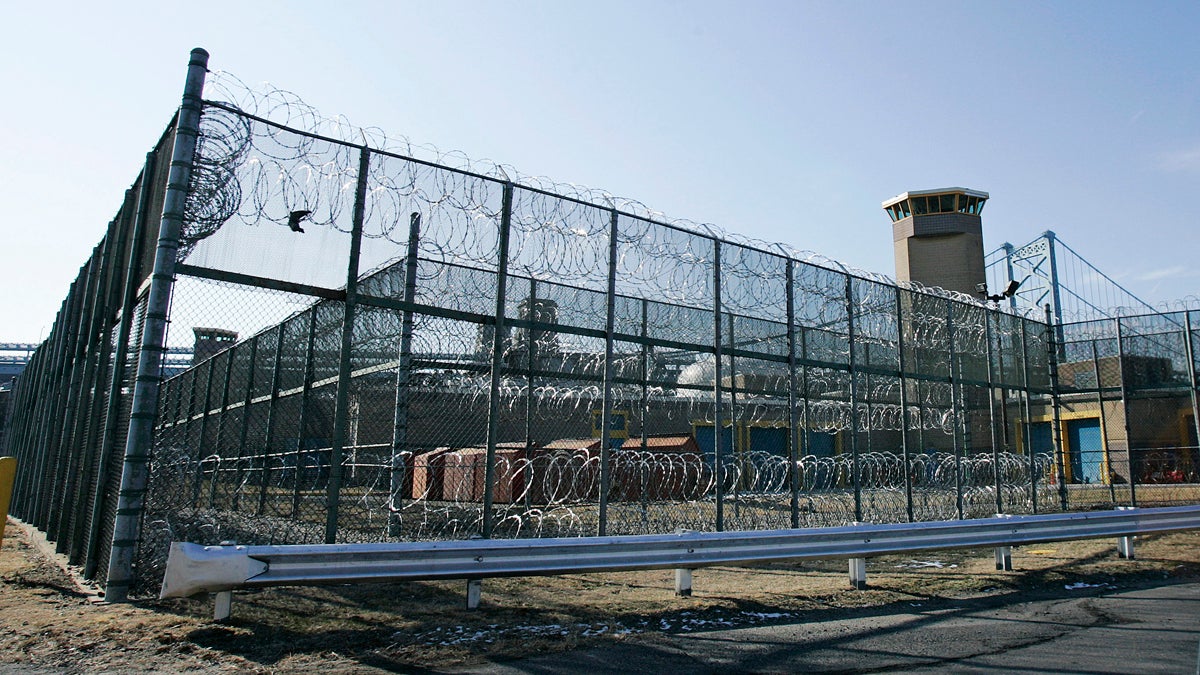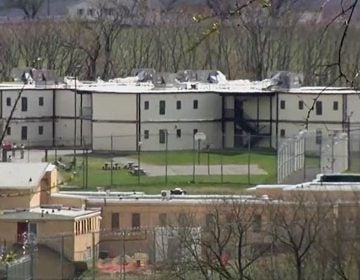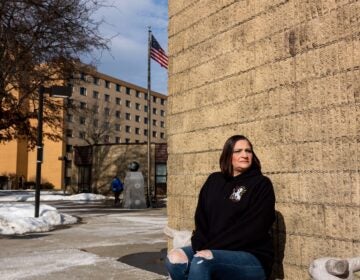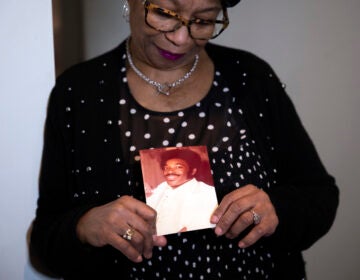Rutgers Law launches New Jersey Innocence Project to help wrongfully convicted people
Rutgers Law School in Camden has launched a statewide effort to help exonerate people who have been convicted of crimes they did not commit.

A guard tower and razor wire at New Jersey Department of Corrections Riverfront State Prison are seen in Camden, N.J. (Mel Evans/AP Photo, file)
Rutgers Law School has launched a statewide project to help exonerate people who have been convicted of crimes they did not commit.
The New Jersey Innocence Project will be based at Rutgers University-Camden and will tap the resources of the law school, which has locations in Camden and Newark.
“We hope to provide support for those people and their families, and we hope to have influence on criminal justice policies that make wrongful convictions more likely,” said Jill Friedman, associate dean for Pro Bono and Public Interest Project at Rutgers Law School in Camden. She is also a co-founder of the project and a former public defender in New York.
Friedman hopes to provide support for people who seek their services “in multiple ways related to their health and well-being; psychological, social, vocational [and] educational,” in addition to providing legal support.
“We hope to build the capacity to meet those needs,” she said.
There are similar projects in the state, including The Last Resort Exoneration Project at Seton Hall Law School in Newark, Centurion in Princeton, and the state Attorney General’s Conviction Review Unit, established in 2019.
Until now, New Jersey was the only state that did not have a project associated with the national Innocence Network based in New York, which Friedman said provided “so much generous guidance” in establishing this new affiliate.
“They are the mothership … They have years and decades of experience doing this work,” she said. “There is so much collective wisdom in that organization.”
According to the National Registry of Exonerations, 39 people have been exonerated in New Jersey since 1989, as well as 78 in Pennsylvania and three in Delaware. The Innocence Project Delaware launched in October 2020.
In addition to tapping the national network, the New Jersey Innocence Project will use the resources of Rutgers across several fields, including forensic science and social work. The group will also analyze cases where a miscarriage of justice took place with the goal of using the findings to support changes to the system.
The search for an executive director of the program is underway. Friedman hopes to have someone in place by September so the project can begin accepting inquiries with priority given to people who are currently behind bars.
Friedman said what they are doing is racial justice work.
“There is no question that the criminal justice system is a modern-day version of Jim Crow,” she said. “The system is designed really to turn Black and brown men into incarceration and out of society. We have to rethink all of our criminal justice policies.”

Get daily updates from WHYY News!
WHYY is your source for fact-based, in-depth journalism and information. As a nonprofit organization, we rely on financial support from readers like you. Please give today.







